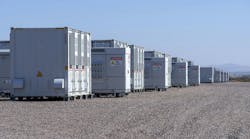Two-thirds of the U.S. population live in cities, and by 2050, more than 70% of the world’s population will be in cities. With populations flocking to urban areas, government and business leaders need to focus on the citizen and real outcomes to reinvent their cities, improve services and build the infrastructure of the digital age. According to Accenture, smart city solutions applied to vehicle traffic and electrical grids could produce $160 billion in benefits and savings through reductions in energy usage, traffic congestion and fuel costs.
Utilities have a long history of working hand in hand with municipalities to improve the quality of life for citizens and businesses. Among the key areas that will be critical to the foundation of smart city initiatives in the coming years are mobility, energy, water and waste management, all of which are heavily dependent on utilities’ involvement and leadership. Utilities have a tremendous opportunity to bring value to the table when it comes to the development and maintenance of the digital and physical transformation of cities. The key to unlocking this opportunity is an agile business model.
Utilities are in a position to play a key role in smart cities, in part due to their infrastructure offerings like smart meter networks and SCADA systems, as well as wide geographic coverage of vital "nodes" such as streetlights, distribution poles and rights-of-way. In the U.S. alone, more than 74 million smart meters have been deployed through 2016. As utilities seek new ways to leverage their smart investments, they are enhancing their communications platforms and developing solutions such as smart streetlights and sensing devices that piggyback on the communications networks for municipal monitoring and response. Utilities can take those investments to the next level by becoming information-driven partners. With an abundance of valuable data on energy usage, electric-vehicle charging, geospatial facilities and topography, utilities can use emerging analytics to draw insights that will fundamentally change how smart cities are run.
Use cases show that utilities could not only be positioned to help city leaders manage their future challenges, but also produce tangible benefits for their customers and shareholders. As many utilities are seeking new sources of earnings growth beyond traditional rate-based growth, smart cities are emerging as an important avenue for future growth.
For one Midwestern U.S. utility, Accenture has conservatively estimated that smart city applications have the potential to generate more than $200 million in additional revenue. This new revenue stream could grow dramatically if utilities think about offering adjacent services such as providing smart meter services to local water and municipal utilities, and monetizing data streams from all these smart city applications.
Despite the visible compatibility between utilities and municipalities, smart city programs have been slow to scale. In the U.S., the role of most utilities with smart cities has been small, focusing on pilots that extend their smart infrastructure (for example, smart streetlights) or targeted civic enrichment programs that can generate small revenue streams (for example, smart kiosks, public Wi-Fi). Utilities looking to flex all of their "smart city muscles" have been facing real barriers such as finding sources of funding (beyond rate base infrastructure), defining and harvesting shared value across different stakeholders, and navigating political uncertainties.
With communications and technology giants positioning themselves as smart city leaders, utilities run the risk of being left out of these partnerships, or being relegated to a limited role. There are several things utilities can do now to position themselves to take advantage of smart city opportunities:
• Invest time in developing a smart cities vision. Utilities need to take a thoughtful approach to determining their aspirations, how this fits into their business models and explicitly define the role they would like to play in community leadership and powering the future economy.
• Take inventory of all the infrastructure assets and capabilities. Utilities need to know exactly what they may be able to use to provide services to other smart city ecosystem partners.
• Define and prioritize the use cases. Utilities need to recognize what will have the greatest potential to create value for the utility and "shared value" for smart city stakeholders and citizens. Launching pilots will help demonstrate value and viability.
• Identify opportunities to establish or take a leadership role. Utilities have an opportunity to be a key player in ecosystems to bring smart city services to life. This will involve developing new, structured processes to identify, attract, vet, negotiate, manage and sustain public-private partnerships, with the goal of creating value for partners, the utility, the city and citizens.
• Make smart traditional infrastructure replacement/upgrade decisions. Utilities’ infrastructure strategy decisions and upgrades from here on out should be made with an eye toward creating a infrastructure that can support future smart city programs.
• Line up potential partners for public-private partnerships. To reach scale, utilities are encouraged to proactively seek partners that can provide inputs into a smart city program (financial, technology, assets) in return for shared value (financial, community outcomes, brand recognition).
Smart cities are well on their way to becoming a reality, but they face a number of challenges in the near-term. Utilities have a real chance to help municipal leaders to manage increasingly complex systems, balance their budgets and engage with citizens more effectively. Doing so would not only make them indispensable city partners, but also open new opportunities for growth and relevance. ♦
Jim Mazurek is managing director of utilities, Accenture Strategy.


